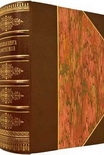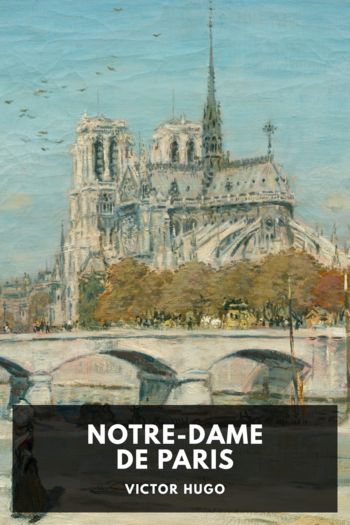Mister Toebones Brooks Haxton (bookstand for reading txt) 📖

- Author: Brooks Haxton
Book online «Mister Toebones Brooks Haxton (bookstand for reading txt) 📖». Author Brooks Haxton
they lifted, and the eyes looked into mine.
To the Water Bear
Kleiner Wasserbär, observed by Pastor Johann Goeze, Quedlinburg, December 10, 1772
Jesus in his little boat said to the crowd
on the bank at Galilee
that the mustard seed, the smallest of all seeds,
is to the full-grown tree
as our mere inkling of the kingdom of heaven is
to the kingdom itself.
Maybe the mustard seed is not the smallest
of all seeds and does not really grow
into a tree. The point was not to measure
seeds, or where we go after we die. The point
was reckoning beyond measure.
You, of course, were small,
much smaller than the mustard seed.
Yet to the German pastor who first saw you
move as if in slow-mo underwater,
under the microscope, you looked
enormous, eight stout legs, he called them feet,
with claws like those of a brown bear:
water bear, he called you…little water bear.
Your mouth was something else,
a nozzle for a telescoping vacuum
set with teeth. It struck, and drew the prey
back onto the twin blades inside for the kill.
Gentlemen in those days used
the hunting rifle, which was the latest thing,
to slaughter every bear in every patch of woods
in their whole country, so that the first
brown bear at large in Germany
since Bismarck came of age was famous
just ten years ago. Bruno,
they called him. From the Italian Alps
he walked for weeks through Austria
into the borderland where Germans shot
their last wild bear in eighteen thirty-five.
He celebrated this return by killing
thirty sheep, assorted goats, chickens,
rabbits, and one little girl’s pet guinea pig,
which he finished chewing
on the front stoop of the Polizei.
Tourists at the local inns, grown fearful
that he might kill some of them, soon
had him shot, stuffed, and set up on display
nearby in their Museum of Mankind and Nature.
Living, you would not have recognized
your likeness in the body of your cousin
Bruno. You lacked optics in your eye spots
and your brain had too few cells. In death,
however, limitations of the living fall away,
or that, at least, would seem to be the premise
of my speaking to you in this poem.
You water bears, unlike your cousins,
thrive in Germany, and everywhere,
from lichens on Antarctic mountainsides
and moss along the Nile down
into the silt bed of the Coral Sea.
You can withstand extremes of heat
and cold. Irradiated, poisoned,
under crushing depths of pressure, or sent
floating into the void of outer space, you live.
Though dried-out, crumpled in a heap like duck cloth,
still, when watered, you can twitch, and come to life.
Your species has survived five hundred million years.
Just after the German, an Italian cleric
with a microscope gave you the name
from Latin tardigrade, slow stepper,
like what Beowulf calls the monster
Grendel: mearcstapa, boundary
stepper. That’s you too. It’s Bruno,
me, and every living thing, all teetering
along the edge. And look! I like the way
you move out here. To my mind, you
surpass the kingdom of heaven: you exist.
The Nationality of Neptune
The planet seafaring people call
Poseidon in the Cyclades,
speakers of one local tongue
in Veracruz call Tlaloc,
after their god of bodies
of water, storms, fertility,
and of the realm of the dead.
To delight Tlaloc Aztecs
used to dress the children
of captives and of the chosen
nobles in colorful paper smocks,
with feathers and shells.
On ceremonial mountaintops
and in caves, high priests
with obsidian knife blades
opened the children to remove
their living hearts. Their screams
and tears, some said, brought down
the blessing of rain. Others
chosen of that god they buried
with foreheads painted blue and seeds
placed on their faces. The planet
Tlaloc is not visible to the naked eye.
The Arctic Vortex at Snooks Pond, 2014
The warmest groundwater seeping into the marsh
before it froze for the first time smoked, and ice flowers
formed in the smoke. Ice petals radiated from low twigs.
Ice feathers hung from the willow trunk reflected.
Spurs took shape on the black sheen just now frozen.
Farther out on the pond, in the deep snow, powder
sifted into cracks where the old ice was contracting
with a chirp like sonar. Cracks in the snow gaped, wide
as an old man’s knuckle, crisscross, so that the pond
was a white mosaic, each tile big as a dance floor.
Tracks from a fox, and from deer and rabbits, marked
the dance steps. A man at the sight of the cracked ice,
though he knew better, felt as if he might fall through.
But the clear ice under the cracks held. It was like him.
Apologies to the Dead
1. To Ruth Stein Blum 1866–1929
Passenger pigeons came
rivering endlessly
into your childhood,
and when you were grown
the last one, Martha,
lived on display
at the Cincinnati Zoo.
She was brown and buff
and dull gray, only her eyes
bright orange, each
with a pale blue ring. 2. To Mary DeFrance 1848–1902
The census before the War has you, age fifteen,
living with a physician, thirty-five. At Shiloh
he was a surgeon with the Fourth Infantry
from Louisiana. The Union advanced,
and you fled home for Vicksburg
where the Fourth Infantry fought again.
When the smell of the rotting dead
and screams from the cracked throats
of the wounded forced both sides
to call a three-hour truce, boys
about to kill each other talked
and traded in a calm between-time
while they tended their friends.
You must have been waiting then
in one of the dirt caves under the bluff,
where people went with carpets, tables,
chairs, and beds, to weather the shelling
from Admiral Porter’s boats. Your new
husband, George Fontaine, was one of the boys
who surrendered. Later, the two of you opened
a dry-goods store in Floyd. Near there
the surgeon, who must have been your father,
murdered an immigrant in cold blood. 3. To Dr. Walter L. DeFrance 1822–?
When the Lord God bird still nested in the swamp,
at three in the afternoon, there was a warm rain.
It was Monday, the first of July, eighteen
sixty-seven. A knock came at the front door.
Herman Stein, my great-great-grandfather,
answered, and you, whose name was never
mentioned in this story, witnessed by his wife
and three small children, drew a pistol…
you, as a gentleman, having taken offense
when billed for your delinquent debt by a Jew.
My father, Kenneth, told me the story told him
by his grandmother, Ruth, who was there
as a toddler when her father died. You,
she said, having shot him in cold blood, went
unpunished, never charged with a crime.
Lately, however, I find that you did





Comments (0)